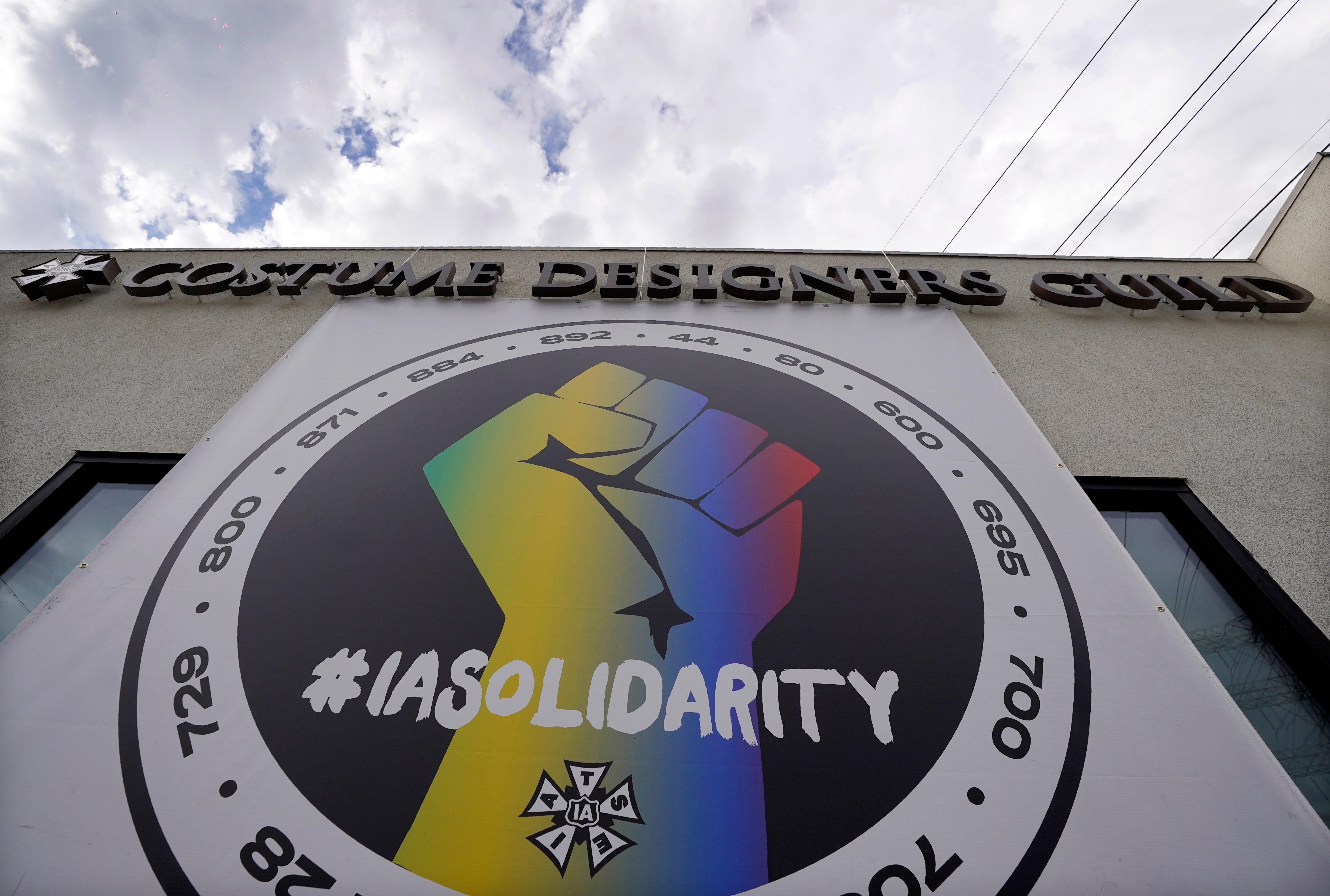Strike dodged with deal between film and TV crews, studios
An 11th-hour deal has been reached and a strike that would have shut down film and television productions across the U.S. was averted

Your support helps us to tell the story
From reproductive rights to climate change to Big Tech, The Independent is on the ground when the story is developing. Whether it's investigating the financials of Elon Musk's pro-Trump PAC or producing our latest documentary, 'The A Word', which shines a light on the American women fighting for reproductive rights, we know how important it is to parse out the facts from the messaging.
At such a critical moment in US history, we need reporters on the ground. Your donation allows us to keep sending journalists to speak to both sides of the story.
The Independent is trusted by Americans across the entire political spectrum. And unlike many other quality news outlets, we choose not to lock Americans out of our reporting and analysis with paywalls. We believe quality journalism should be available to everyone, paid for by those who can afford it.
Your support makes all the difference.An 11th-hour deal was reached Saturday, averting a strike of film and television crews that would have seen some 60,000 behind-the-scenes workers walk off their jobs and would have frozen productions in Hollywood and across the U.S.
After days of marathon negotiations, representatives from the International Alliance of Theatrical Stage Employees and from the studios and entertainment companies who employ them reached the three-year contract agreement before a Monday strike deadline, avoiding a serious setback for an industry that had just gotten back to work after long pandemic shutdowns.
Jarryd Gonzales, spokesman for the Alliance of Motion Picture and Television Producers, which represents the studios and other entertainment companies in negotiations, confirmed the agreement to The Associated Press.
The union's members still must vote to approve the tentative agreement.
The effects of the strike would have been immediate, with crews not only on long-term productions but daily series including network talk shows walking off their jobs.
The union represents cinematographers, camera operators, set designers, carpenters, hair and makeup artists and many others.
Union members said previous contracts allowed their employers to force them to work excessive hours and deny them reasonable rest via meal breaks and sufficient time off between shifts. Leaders said the lowest paid crafts were receiving unlivable wages and streaming outlets including Netflix, Apple and Amazon were allowed to work them even harder for less money.
Details of the new contracts were not immediately revealed.
The union reported on Oct. 4 that its members had voted overwhelmingly to authorize a strike, setting off industry-wide fears, but negotiations immediately resumed between IATSE and the AMPTP.
A Monday strike deadline was set on Wednesday when talks stagnated, but the union said subsequent negotiations were productive.
It would have been the first nationwide strike in the 128-year history of IATSE, and would have affected not just the Los Angeles area and New York but growing production hubs like Georgia, New Mexico and Colorado.
During negotiations, many prominent names in entertainment spoke out in favor of the union’s demands, including Octavia Spencer, Mindy Kaling and Jane Fonda. The Directors Guild of America issued a statement of solidarity too, signed by the likes of Steven Spielberg, Christopher Nolan, Barry Jenkins, Ron Howard and Ava DuVernay.
___
AP Film Writer Lindsey Bahr contributed to this story from Pittsburgh.
___
Follow AP Entertainment Writer on Twitter: https://twitter.com/andyjamesdalton.